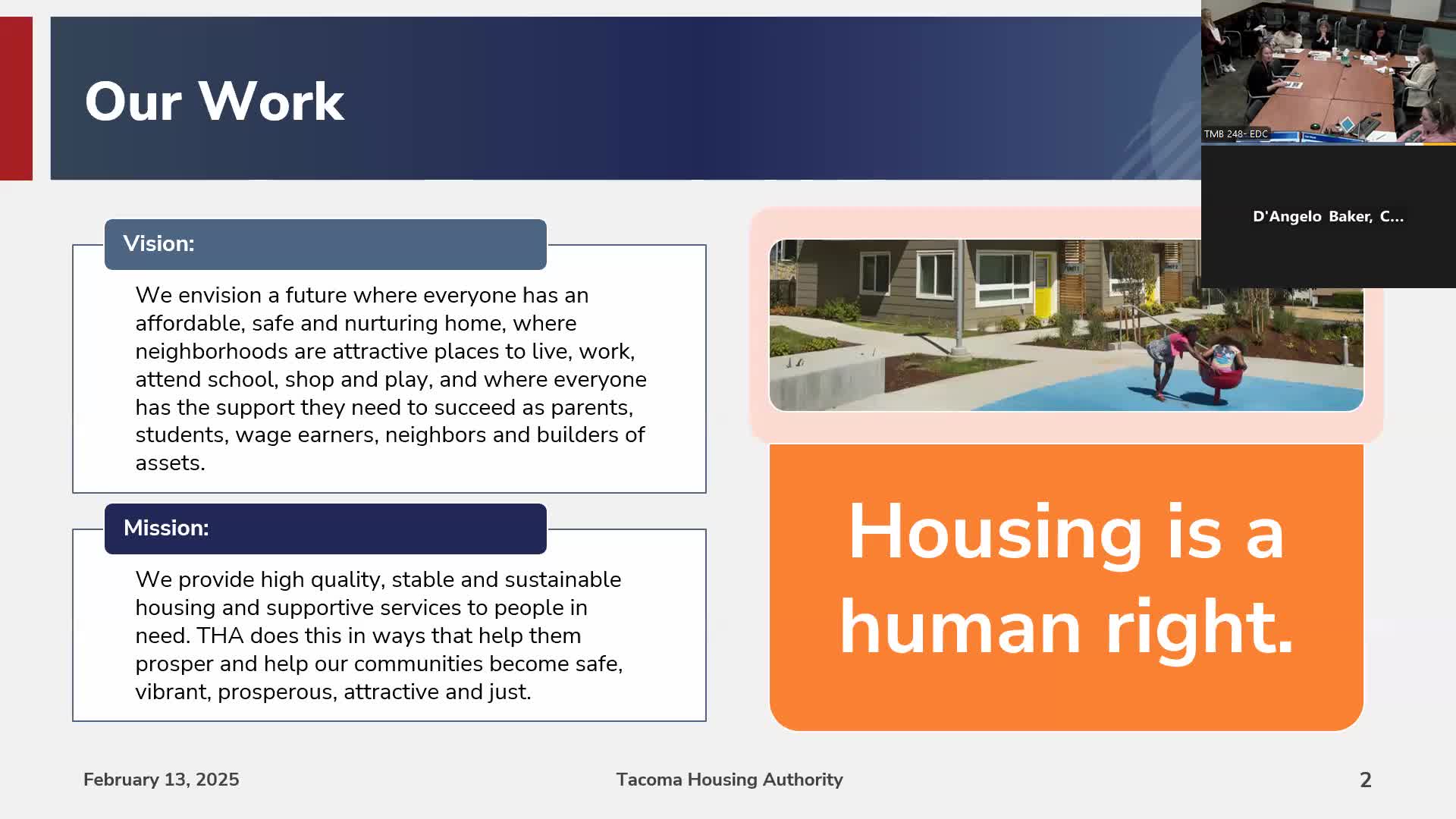Tacoma Housing Authority reports pipeline growth and warns of eviction-moratorium and federal-funding risks
Get AI-powered insights, summaries, and transcripts
Subscribe
Summary
Tacoma Housing Authority told committee it has added hundreds of affordable units since 2023 but is seeing a mismatch between subsidized rents and local incomes, rising rent arrears tied to the winter eviction moratorium, and potential federal funding uncertainty.
A representative of the Tacoma Housing Authority briefed the Community Vitality and Safety Committee on Feb. 13, reporting growth in the agency's development pipeline but flagging financial pressures tied to tenant delinquency, a winter eviction moratorium and uncertainty around federal funds.
The THA representative said the authority serves more than 10,000 people in about 4,500 households and that its recent development work includes Housing Hilltop (231 units), project-based voucher contracts on multiple properties, and Mercy Housing's Aviva Crossing (expected to deliver 129 units). The authority said it has added 349 units since 2023 and expects to exceed 600 units once Aviva Crossing is completed.
The THA representative outlined a mismatch at Housing Hilltop between the income of people expressing interest and the project's income thresholds. Of more than 1,800 inquiries in a lottery period, only 13.8% met the minimum and maximum income criteria; 69.5% of inquiries reported incomes below 50% of area median income. The presentation noted that the project was financed for households at up to 60% AMI and that the authority had added subsidies to some units to reach 50% AMI levels.
THA also described its newly launched continuous waiting list (opened in November), which accepted about 5,000 applicants in the first 24 hours and more than 9,000 by December; 53% of applicants had Pierce County addresses and 34% listed Tacoma addresses. The median reported income among applicants was $13,000 and the average was $18,000, the presentation said.
The authority warned the committee of rent-collection challenges related to a winter eviction moratorium (Measure 1). "We believe that this is an impact of measure 1 that we cannot pursue evictions during the winter months," the THA representative said, citing tenant arrears and additional costs to the agency. The authority reported 324 households were one month or more behind on rent as of Jan. 10, representing roughly $900,000 in unpaid rent.
The THA representative also flagged federal funding uncertainty. The authority said it spends about $6,000,000 a month on subsidies and that a $2,000,000 federal grant is committed for infrastructure at Aviva Crossing (part of an $11,000,000 need for that site). Staff warned that reductions or pauses in federal funding could prompt requests for local support.
Committee members asked about income changes among residents, the definition of "homeless" used in the waiting-list data, and how commercial space at Housing Hilltop is performing. The THA representative said commercial tenants are struggling to secure tenant-improvement financing even with available subsidies, which could affect leasing outcomes in mixed-use developments.
Ending: The committee received the briefing and discussed potential areas for follow-up, including tracking federal funding developments, examining subsidy needs for developments in lower-income neighborhoods, and continuing coordination between the housing authority and city staff on shelter and development transitions.
